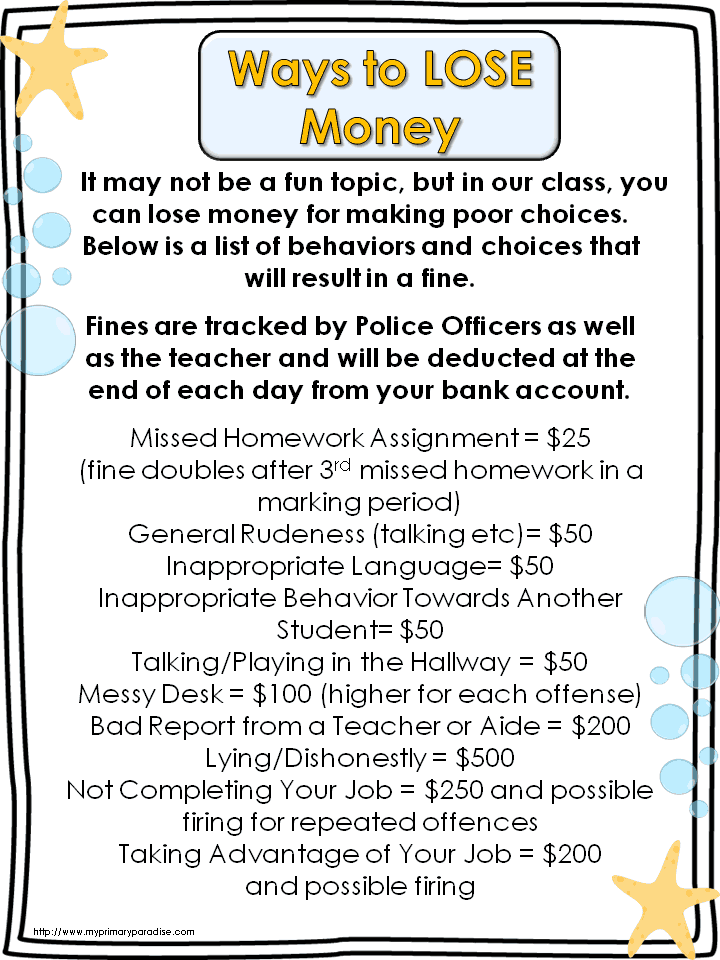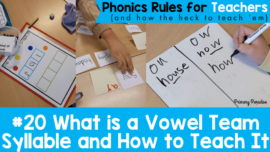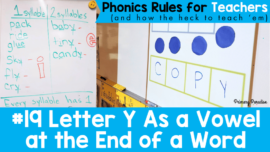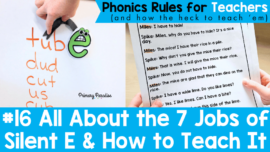Have you ever read an educational book that recharges your batteries and reignites your excitement for teaching? I can honestly say that almost every professional book I’ve ever read (apart from the boring ones ;)) has that affect on me. I think that reading about new ideas, new strategies, and success stories is so important to keeping your teaching mind fresh.
Well, recently I read one of those “kick you in the pants” type of books. I posted a few weeks ago that I will be movin’ on up from First to Fourth. I knew that I would need to step up my classroom management system. I also knew that I wanted to give more responsibility to my Fourth Graders because they could definitely handle it. That’s when someone recommended I read Teach Life Your Hair’s on Fire and let me tell you, boy did I feel challenged and inspired.
If you’ve never read this book, it’s written by an amazing teacher from California who teaches in an extremely rough area. Long story short, his classroom is an amazing place, his students achieve far beyond their peers, and he offers up some of his strategies that have made him such a successful and well known teacher.
I’m going to be honest, some of the things he does are awesome, but (I feel) are unrealistic for people who have other responsibilities besides teaching. However, there were a few things I really liked that I’ll be blogging about over the next few weeks.
The first idea that I absolutely LOVED was his classroom economy. Okay, it’s not actually his classroom economy (which he fails to mention), but it is a great tool that he uses. He briefly mentions it in this book, but he offers a more detailed explanation in is 2nd book There are No Shortcuts. However, like I said, it’s not his original idea, so do a little googling and you can find out ALL about it.
Here’s the cliffnotes version of this classroom economy.
- Every student in the class applies for (is not given) jobs that they are interested in, interviews with the teacher, and may possibly need to provide a reference letter from an adult depending on the importance of the job.
- Depending on the responsibilities of each job, students will receive a salary at the end of each month. For example: the custodian has to clean and organize twice a day, and this is a very important job to maintaining the learning environment, so they will receive more than the Zoologist who has to feed the fish once a day.
- Each student also has to pay rent for their desk. Their salary alone is not enough to pay their rent, so they need to earn “bonus” money for things such as turning in all of their homework, helping others, high grades, and generally the behaviors we reward in a classroom.
- Students can also lose money for inappropriate behaviors such as missing homework, lying, inappropriate language or behavior, not doing their job etc. In my class I’m going to call this getting fined.
- Each student has to keep track of their finances in a transaction register. They will have to note all credits and debits they receive.
- There are a few students who are bankers. They are responsible for their own bank account as well as checking the accuracy of 2-5 others students’ bank accounts. (This job will require a reference since it requires a lot of trust and responsibility.) They will also take deposits so that my students don’t have stacks of fake money all over the place.
- There will also be a few students that are police officers. They are responsible for keeping track of 2-5 students’ fines on a daily basis. They will also require a reference letter from an adult because of the responsibility they hold.
- At the end of every month, there will be a (silent) auction with a few items. The most I plan to ever have is 7 or 8. Students can bid on anything or nothing. It’s their choice. They just will hopefully be responsible enough to save money for rent.
- Here’s where it gets interesting. If students can save 3X their rent, they can purchase their desk outright. They will no longer have to pay rent, but will have to pay quarterly property taxes.
- Students who have already purchased their desk can save 3X someone else’s rent, purchase their desk, and collect rent from them. (I will be putting a cap on the rent they can collect, or course.)
That’s the system in a nut shell. I love how it teaches responsibility, math skills, delayed gratification, money management, citizenship, and many other life skills.
I should also point out that job postings will go up every quarter, so students will not have the same job all year.
I’m also thinking I might add an element of having students donate money to a “pot” for the class to earn a class prize once a quarter. I still want to make sure to foster a community environment.
In my class, I will have the following job choices.
- Botanist (1- takes care of the plants)
- Librarians (2-keeps the library organized, helps students check out books, repairs broken books)
- Accountants (5- aka bankers- keeps track of other students’ finances)
- Messengers (2- brings messages to and from the office and other classrooms)
- News Anchor (1- must bring in a current event to share with the class on Mondays and Fridays, keep track of the calendar (birthdays, holidays, etc), and helps with attendance)
- Police (4- keep track of students’ fines)
- Clerks (2- pass out, collect, and organize papers. will also grade some simple assignments)
I’ve already made my job postings. If you’d like them, just click on any of the pictures below. (Sorry, I am unable to edit them to fit your classroom at this time.) Since my theme is tropical, they have a tropical theme. Students will also be earning sand dollars. 🙂
It also includes a list of ways to earn and lose money.
**Edit: I just posted the whole classroom economy pack! Click the picture below to check it out!
I’d love to hear what you think about this classroom economy. I know it’s pretty complicated, but I also think it could be adapted for younger grades. If you take away the police and bankers and simplified the costs of things, I think it could work.
Have a lovely week, and stop back soon!
Martha from Primary Paradise
















